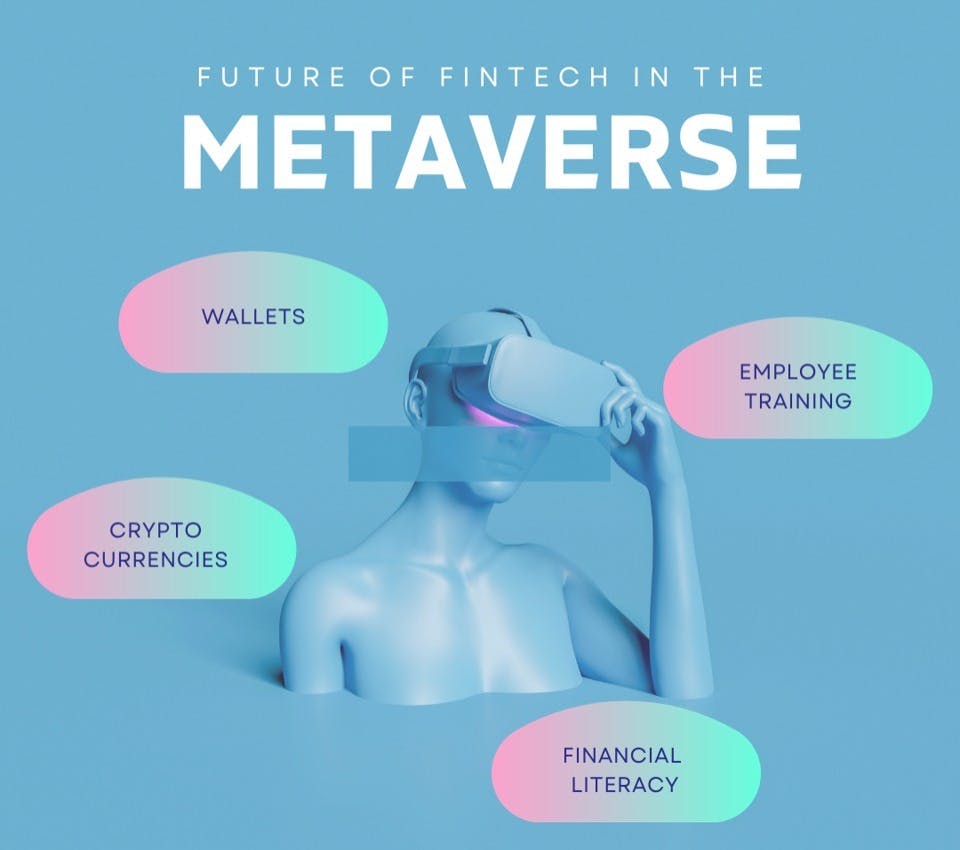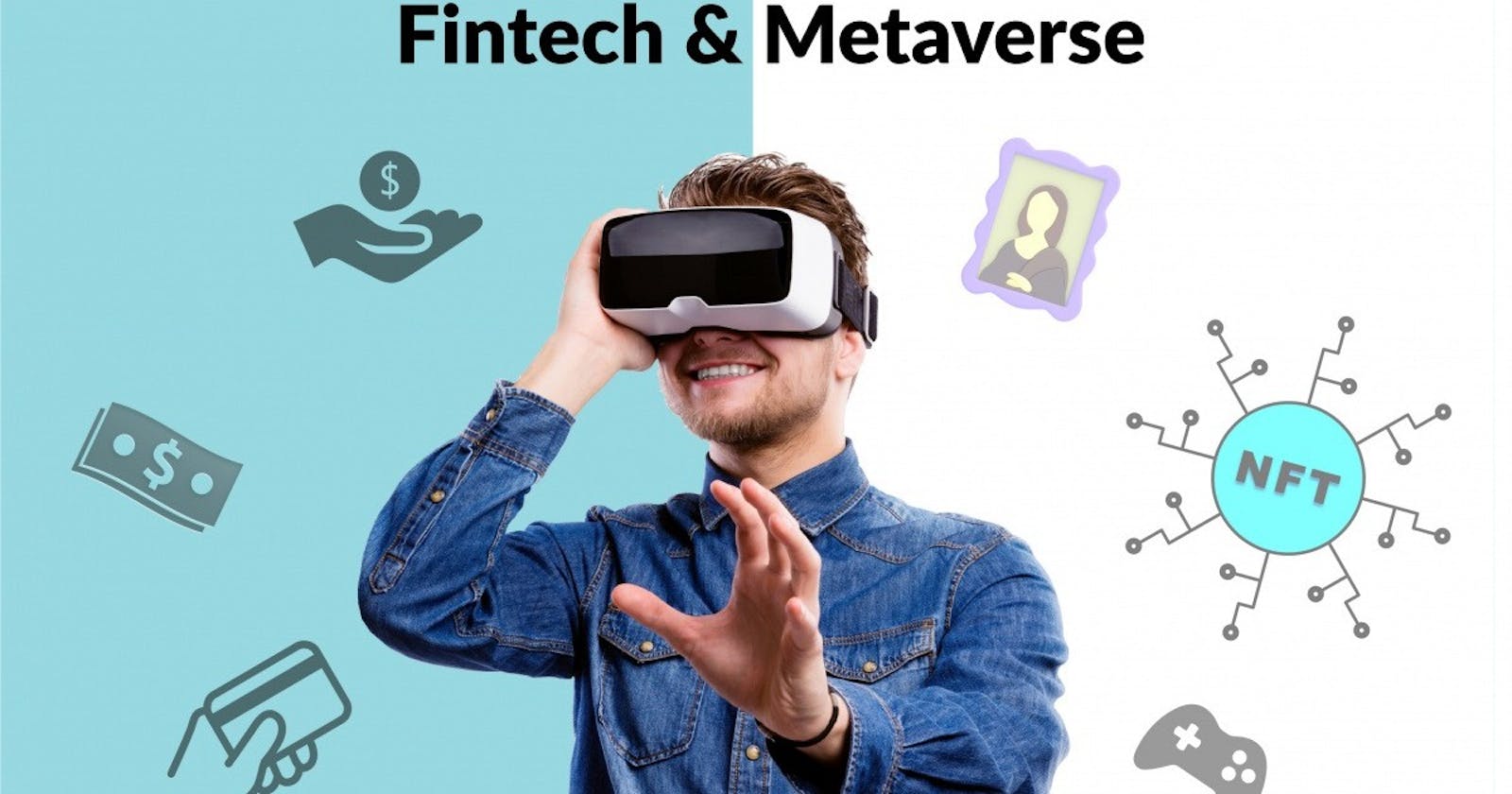We've arrived at a turning moment. The beginning of the internet's next chapter. A chance to tear down barriers and democratize ownership and access to products and services. The metaverse will change how individuals interact, businesses flourish, and artists earn money. And, with it, richer social experiences than anything now available, as well as a digital economy supporting millions of creators and companies.
The COVID-19 pandemic drove things to evolve in a specific direction, which is reflected in the rising interest in virtual spaces, blockchain, and cryptocurrencies. For both enterprises and people, the focus has moved to the building of a digital presence and digital assets. It makes even more sense when we consider the continual frenzy and uncertainty around COVID-19, as well as the fact that the globe is just one version away from being locked.
In the Fintech business, there is a greater sense of participation, liberty, and manifestation. So let's see how Fintech comes into the limelight due to the metaverse hype!!
Introduction
Mark Zuckerberg and crypto fans have one thing in common: they both enjoy the metaverse. Their view of the metaverse, on the other hand, might be entirely different – with far-reaching implications for fintech and digital financial institutions. The metaverse, which is envisioned as a 3D virtual environment that allows users to engage in virtual socializing and virtual enterprises of all kinds, is still a long way from being a completely immersive and cohesive virtual reality. Is it merely a speculative crypto-fueled craze, or is the hype ever going to meet reality? And yet, as investment companies and Big Tech spend vast sums of money on constructing these fledgling virtual worlds and the ecosystems that exist within them, the groundwork is being laid for a massive shift in payment systems and commercial relationships. However, in this sci-fi reality-to-be, who will be the gatekeepers — and what the underlying financial structures will look like as a result — remains an unresolved topic.
AR, VR, AI, IoT, and blockchain are all rapidly developing technologies. Likewise, their infiltration into our daily life is rising fast. They're utilized in a variety of industries, including healthcare, manufacturing, finance, hospitality, and customer service. Given the current state of affairs, these technologies have the potential to considerably improve the services provided in these many industries. For example, virtual reality can totally revolutionize the future of fintech by allowing financial institutions to hold virtual meetings and clients to pay for items without leaving their homes.
As it has in many other businesses, the online reality of the metaverse has sparked a thirst among financial entrepreneurs to investigate how fintech and new fintech solutions may supply financial services in this whole new world. The development of new business models using metaverse technology might pave the path for crypto to become a large-scale alternative financial system. Other large and small financial institutions are seeking to build digital worlds as well. Metaverse activity and transactions can be enabled by these types of digital financial ecosystems.
How Will the Metaverse Impact the Future of Fintech?
Digital or fintech technologies are already changing the way people deal in real life. Cashless transactions are already on the rise, and they will be the foundation for metaverse financial transactions.
The metaverse innovator provides new possibilities for firms looking to integrate finance solutions into the digital environment's virtual universe. Because of their experience with virtual and augmented reality principles, many internet users, particularly video gamers, understand the notion of the metaverse.
People will be able to purchase and sell real estate, manufacturing, textiles, and other items in the metaverse using digital currency. This will serve as the foundation for the massive economic metaverse ecology. And we're not talking about some distant future here. It's now taking place. Republic Realm, a metaverse real estate company, has previously paid $4.3 million for a parcel of property in the virtual environment Sandbox.
What can we expect from financial technology companies and financial services corporations as they embrace the metaverse? To begin with, financial services firms are most likely to use the metaverse to communicate with clients. Several fintech and financial services organizations have already used AR/VR to make early efforts in this area. There are numerous compelling examples of how 'virtual cities' on metaverse systems, complete with unique commercial hubs and entertainment zones, have aided customer integration. South Korea entered the metaverse in November 2021 with a €2.8 billion "Seoul Vision 2030 Plan."

Here's a look at some fintech services applications in the metaverse:
- Cryptocurrencies
- Metaverse Wallets
- Financial Literacy
- Virtual Employee Onboarding and Training
Virtual Interactions: Virtual interactions with clients are the most probable approach for financial services businesses to connect with the metaverse at first. As previously said, several fintech and financial services companies have made beginning steps in this regard by utilizing AR/VR technology. Few have taken the concept as far as Korea's Kookmin Bank, which built a "virtual town" on a metaverse platform including a commercial hub, a telecoms hub, and an entertainment complex.
Fintech services in the metaverse appear to have a bright future. Financial firms, on the other hand, will need to make fast investments in the metaverse's digital economic environment if they want to flourish and be future-ready. However, because the metaverse is still in its early phases, the ROI will be slow. Fintech services should be prepared for this.
Conclusion
Although it is unclear how the metaverse will evolve in the future, there are currently substantial advantages. The finance area is already linked to the game business thanks to the metaverse, which makes it much more intriguing to investigate. With pre-designed corporate hubs and entertainment zones, Metaverse allows IT giants to cooperate, exchange experiences, and interact in the so-called "virtual world." Payment systems have never been more simple and diverse, allowing businesses to contact as many prospective consumers and partners as possible.
Our path is based on our objective to provide access to the global financial system to everyone, everywhere, in order to advance financial inclusion and economic development. Designing goods and infrastructure with the metaverse in mind now will aid in innovation that will provide better access and actual cost reductions — even before the metaverse becomes popular. Now is the moment to start laying the foundation for the future. Because once that framework is in place, the metaverse's capabilities and where it may go fintech next are virtually unlimited.

